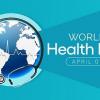News
Displaying Results 1 - 6 of 6
Water scarcity and pollution is increasing worldwide, as a result of the rising economic demands for water, population growth and rapid urbanisation, exacerbated by ecosystem losses and climate change. Water-related risks can negatively affect sustainable development, human health and well-being, …
Preventing accidental water pollution remains a key challenge for many countries within and beyond the UNECE region. Approximately 60% of the world’s freshwater flows occur in transboundary river basins where 40% of the world’s population live. Countries rely increasingly on transboundary water…
As guests of the planet, we human beings can thrive only if our host environment is thriving. We are strongly connected to it, more than we probably understand and more than we probably dare to admit.
Conversely, the ways humans treat the environment has clear negative effects on our health and…
COP26 was a positive step forward in the fight against climate change, but as the UN Secretary General pointed out in his comments: “it is not enough. We must accelerate climate action to keep alive the goal of limiting the global temperature rise to 1.5 degrees.” The compromise deal reflects the…
While many of us have taken pain relievers, we do not always remember that one of the most extensively used medicines in the world – with an estimated annual consumption of 40,000 tons – salicylic acid, commonly known as aspirin, is based on a tree-derived ingredient.
The theme of this year’s…
How to step up environmental protection, reduce resource use, cut pollution and foster the shift to a circular economy that is needed to make sustainable development a reality? These will be some of the topics at the core of debates when Ministers from the 56 countries of the UNECE region gather in…







